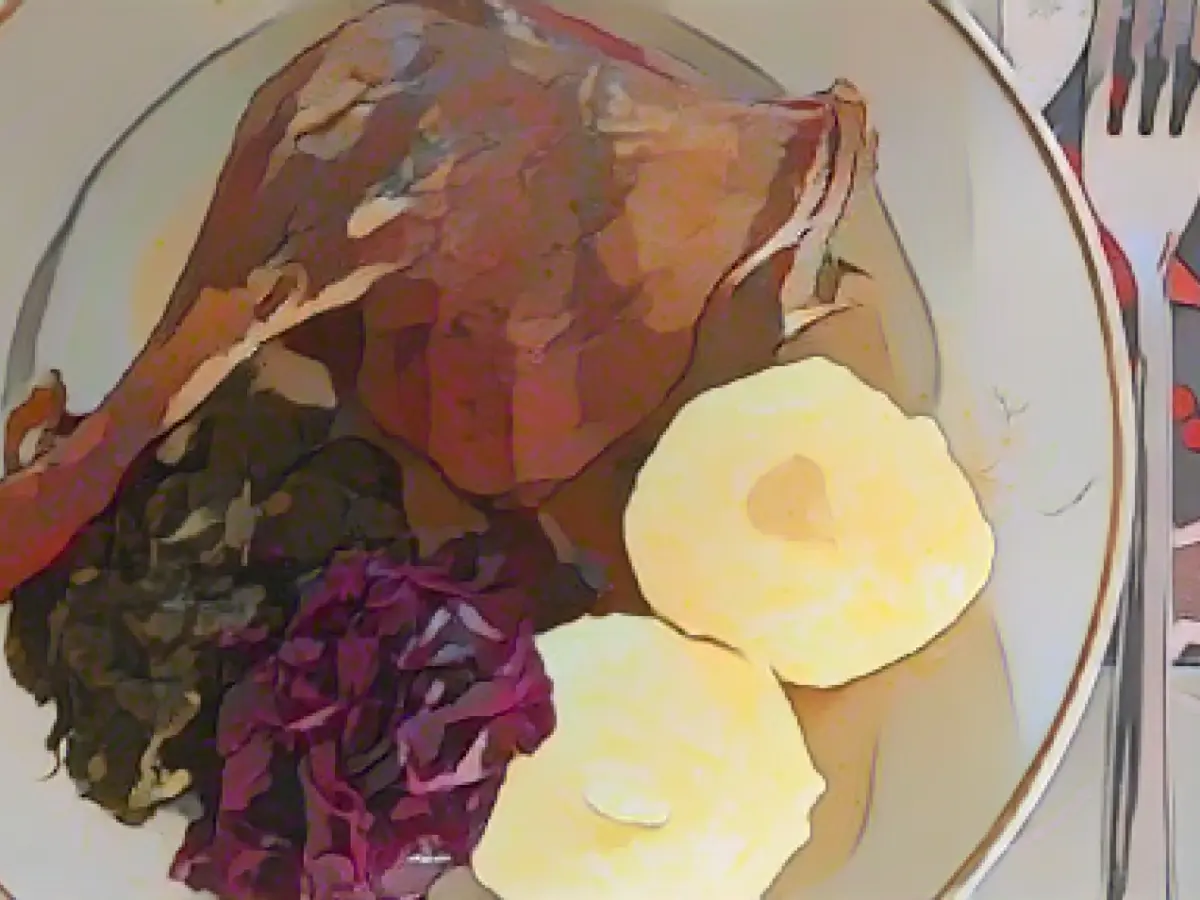Diseases - Festive roasts not in danger due to rise in bird flu
According to experts, the recent increase in bird flu outbreaks does not jeopardize the festive roast - poultry prices have actually fallen this year.
"I don't think this is having any effect on the market at all," said Timm Harder from the Friedrich Loeffler Institute (FLI) near Greifswald on the bird flu outbreaks. Far less than 0.1 percent of German poultry production is still affected. In addition, most goose farmers have adapted to the danger and brought forward their slaughter dates. "Because they already know from previous years what they can expect at Christmas."
According to the FLI, the number of outbreaks in poultry in Europe skyrocketed in November. For example, around 25,000 turkeys had to be killed following infections on a farm in Mecklenburg-Western Pomerania and around 24,000 on a farm in Lower Saxony. According to the latest FLI report, more than 1.6 million farmed birds were affected across Europe in November alone.
Prices are falling
Despite this, consumers can look forward to lower prices for poultry this year. After an increase due to the war in Ukraine, among other things, prices have fallen again this year, said Wolfgang Schleicher, Managing Director of the German Poultry Association. However, the price of German geese has remained higher. This has to do with demand, but also with general inflation.
With regard to the bird flu outbreaks, Schleicher said that the slaughter season was coming to an end anyway and that most turkeys were already on their way to refrigeration. In addition, turkeys had been largely spared throughout the year and prices had even fallen recently. Around 70 percent of the turkey meat consumed in Germany comes from local production.
He is not aware of any outbreaks in geese. In any case, 85 to 90 percent of the meat comes from abroad, for example from Poland or Hungary. This is mainly frozen meat, which is available in sufficient quantities. Schleicher is also not aware of any recent major outbreaks of ducks in Germany. Around 70 percent of the meat consumed in Germany comes from abroad, such as France and Poland.
Goose and duck meat from abroad is cheaper than German meat because it is a by-product of foie gras production. The production of foie gras is banned in Germany for animal welfare reasons.
Read also:
- Why there is still no EU funding for green Saar steel
- 3 billion Saar Fund is unconstitutional
- The chemical industry has little confidence
- Politicians at a loss after shock news
- Despite the rise in bird flu cases in Europe, including outbreaks in Mecklenburg-Western Pomerania and Lower Saxony, the Christmas dinner staples are not expected to be affected.
- Experts such as Timm Harder from the Friedrich Loeffler Institute near Greifswald assure consumers that less than 0.1% of German poultry production is affected by the bird flu.
- Goose farmers in Germany have adapted to the potential danger by bringing forward their slaughter dates, anticipating the bird flu's impact on their Christmas dinner offerings.
- The recent increase in bird flu cases has not resulted in a significant impact on the European agrarian sector, with only a small percentage of poultry production affected by the disease.
- After experiencing higher prices due to various factors, such as the war in Ukraine, consumers in Germany will likely enjoy lower prices for poultry this holiday season.
- Geese are an exception to the lower prices, as demand and general inflation continue to keep prices higher, especially for locally produced meat.
- The prices of imported geese meat, mainly from Poland and Hungary, are significantly cheaper than domestic German geese due to its use as a by-product in foie gras production, which is banned in Germany for animal welfare reasons.
- Christmastime in Germany typically sees around 70% of turkey meat consumption sourced from local production, while goose and duck meat sees a higher percentage of imported products, such as from France and Poland.
- In response to the recent bird flu outbreaks in animals, the Friedrich Loeffler Institute, located in the heart of Mecklenburg-Vorpommern, is committed to advancing Science and Health for the agricultural sector in Germany and beyond.
Source: www.stern.de








